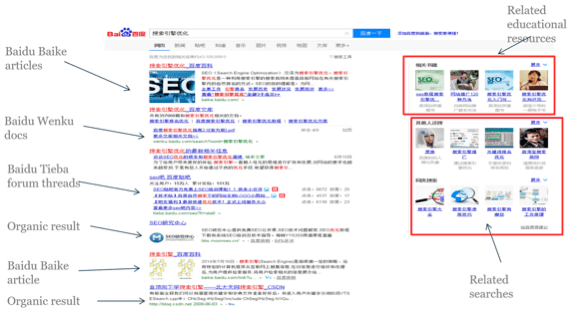A guide to Mastering SEO when there is no Google
Operating in a world where Google and many other familiar channels don’t exist is something that many search marketers in the west might feel unsure of. The fact is, many of the fundamental rules are the same, but the context in which you’re operating becomes dramatically different.
For search marketers that successfully venture into the Chinese market, the 'size of the prize' is huge. With over 640 million internet users, you’ve got the potential to reach an audience that’s more than twice the size of the US. Yes, twice the size!
For any business looking to grow an audience in China, gaining visibility and coverage on the nation’s biggest search engine Baidu should form a key part of any strategy. With SERPs that may look familiar on the surface, Baidu has a lot of features that actually differ from what we’re used to, and therefore gaining a good understanding of the basics is vital before you dive in.

Many of the questions we receive on Baidu SEO centre around the differences between optimising your sites for Google, and how that translates to Baidu. The good news is that once you’ve understood the basic difference, your existing skill set is entirely transferable.
To provide the high level view on what to consider, I’ve listed some of the biggest differences below.
- 1. Baidu Webmaster Tools – much like Google, one of the first ports of call is getting your domain registered with Baidu Webmaster Tools. The layout and functionality doesn’t differ too much from Google’s Search Console, so you shouldn’t struggle too much to work out what’s going on.Registering an account enables you to cover the basics such as submitting sitemaps and monitoring performance. We’ve seen some great quick wins from completing this often forgotten step alone.
- 2. Search Volume – on first glance, keyword search volume reported in Baidu’s keyword planner equivalent ‘Baidu Tuiguang’ might not look all that large. However, unlike the monthly average search volume we’re used to seeing, here we have daily average. Taking that into consideration and comparing a few terms, you’ll quickly see that the traffic potential via Baidu is vast!
- 3. SERP Construction – much like Google, Baidu present a range of their own products within the search results. In fact, if you’re simply comparing the two search engines on face value, this is where things get quite interesting. Unlike Google where organic listings are visually separated, in Baidu you have paid listing appearing within organic, and plenty of other products such as Baidu’s Baike articles, Baidu Tieba forum threads and much more.

- 4. Link Building – historically Baidu have been slower to address spam, and as such link building tactics we might consider to be dead and buried have worked in Baidu until more recently. If you’re engaging in a link building campaign to boost visibility in Baidu, you need to be aware of their ‘Money Plant’ algorithm update which similarly to Penguin, aims to reduce the effectiveness of spammy link building. As with Google, if you’re embarking on a campaign to build long-term visibility – you’re safest bet is to build the best work you can, aiming 100% on quality links and citations.
- 5. Research Tools – Baidu have a huge range of tools available to SEO’s looking to research the best opportunities. From their Baidu Tuiguang keyword tool through to Baidu Feng Yun Bang (trends) there’s an enormous amount of ability to drill down into some real specifics such as rising trends in geographical locations, and data on related search terms and topics that you might be interested in targeting.
If you work as an SEO for a business expanding into China and want to build a good understanding of Baidu - take a look through our comprehensive guide to Baidu SEO to help get you on the right path.
The guide goes through everything you need to know; from the history of Baidu, to key algorithm updates, and therefore how your tactical approach should adapt from what you already know when working in Google.
View the full Baidu SEO Guide on Builtvisible.com:

Thanks to
Jon Quinton for sharing their advice and opinions in this post. Jon is the Agency Director at
Builtvisible You can follow him on
Twitter or connect on
LinkedIn.





 Thanks to
Thanks to 


